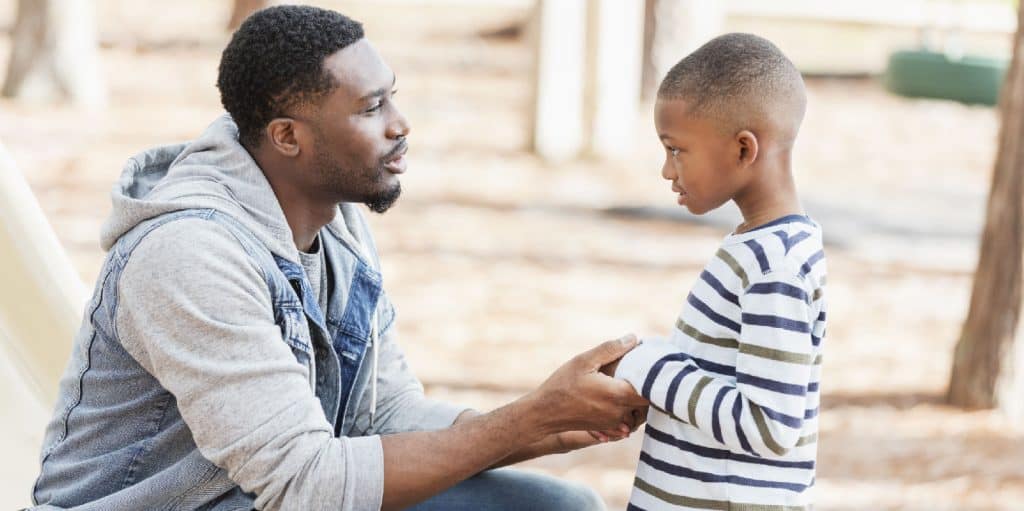Tips for talking to children about difficult news stories

When traumatic events that may make children feel unsafe and scared are in the news, it is often difficult for parents to find ways to communicate and comfort them. For many parents, it can be difficult to have conversations with children about topics like death, violence, and crime.
One of our expert child psychologists, Mark Lynn, PhD, LP shares some useful tips on talking to your children.
- First, do some work on your own, to prepare – sit with your own emotions as this is an overwhelming story. What are your own questions, and fears? Then, look at your fears along with data. For example, less than 10% of abductions are by strangers; a recent story where a child was abducted by a stranger in their own home was an exceptionally uncommon incident.
- Then, let your children lead – ask your kids what they know about the story and if they have any questions about it (at first, just listen!).
- Make an effort to validate their questions and emotions – this tells them they are not crazy and that it’s safe to talk about these fears with you.
- Depending on their questions, do your best to answer with facts in a language they can understand; if you don’t know the answer, it’s very much okay to say that.
- Do not be alarmed if they don’t have the same questions or show the same level of fear or other responses that many of us adults experienced in learning about the story. We all process information differently. Kids see the world through different lenses and that’s a great/normal thing. You do NOT need to prompt them to think about content/questions that you think they should have on their mind. Making it a safe space to share their reactions, no matter what they are, is the key.
- In the end, this is a great opportunity to remind/reassure them of their own safety; you can acknowledge the world does include some scary things AND that your job is to keep them safe, be available for comfort, support them with their questions, etc. You are more than capable of being the rock your child needs.
- Keep in mind that steps 1 and 2 will often need to be repeated over time – especially as kids continue to process and develop their understanding related to an event.
Find more information about pediatrics and child/adolescent mental health services at Hennepin Healthcare.
 Dr. Lynn is board-certified in clinical child and adolescent psychology, and he provides outpatient clinical care through the Child and Adolescent Psychiatry Services clinic as well as primary care behavioral health services through outpatient therapy and consultation in the pediatric clinics. He also provides pediatric consultation-liaison services to the inpatient pediatric trauma center. His clinical areas of interest include working with children/adolescents and their families related to the broad range of challenges that can arise, particularly during key developmental transitions (e.g., to early adolescence), as well as support and advocacy for LGBTQ youth.
Dr. Lynn is board-certified in clinical child and adolescent psychology, and he provides outpatient clinical care through the Child and Adolescent Psychiatry Services clinic as well as primary care behavioral health services through outpatient therapy and consultation in the pediatric clinics. He also provides pediatric consultation-liaison services to the inpatient pediatric trauma center. His clinical areas of interest include working with children/adolescents and their families related to the broad range of challenges that can arise, particularly during key developmental transitions (e.g., to early adolescence), as well as support and advocacy for LGBTQ youth.

